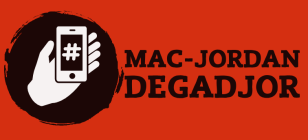-
Lemfi’s deal with Visa boosts its global presence, enabling efficient cross-border payments and expanding financial services worldwide. Lemfi, an emerging fintech startup, has recently inked a pivotal expansion deal with the global payment processing platform Visa, marking a significant stride in its quest for global reach. This strategic partnership...
-
The Central Bank of Nigeria (CBN) has approved Abeg App, a Piggytech Global Limited product, as a Mobile Money Operator in Nigeria. Abeg Technologies Limited, a division of Piggytech Global Limited, has been given approval in principle (AIP) by the Central Bank of Nigeria (CBN) to operate as a...
-
Uber has reached a significant milestone by clocking one billion rides across all of its African markets per reports. Uber announced today that it has completed 1 billion rides across all of its African markets. According to the company’s press release, this feat equates to more than 10 billion...
-
Dash, a Ghanaian fintech startup, has been ordered by the Bank of Ghana to cease operations due to unapproved licences. The Bank of Ghana has ordered Ghanaian fintech company Dash to cease operations. The fintech startup has been growing since securing a $32.8 million seed round of funding with...
-
Sendbox, a Nigerian peer-to-peer delivery platform for social commerce, has secured $1.8m in a seed funding round to scale operations. A Nigeria-based e-commerce fulfillment platform for merchants in Africa, Sendbox has today announced the completion of a $1.8 million seed round from investors including 4DX Ventures, Enza Capital, FJLabs...
-
A social commerce platform that connects people to sell, resell and buy products or bookings, Reselr has launched its services in Nigeria. reselr.com is a new online platform that makes it easy to sell anything you have quickly and securely. From one-time individual sales to full-time sales support for businesses...
-
Gozem, the ride-hailing app offering transportation services via motorcycles, tricycles and cars in West and Central Africa, has today taken one step further towards becoming Africa’s all-inclusive super app. With the launch of e-commerce delivery services, users in Lome and Cotonou can not only use Gozem to move around...
-
Cars45 provides an end-to-end digitised customer journey for buying, selling and swapping cars in Africa. Its technology-enabled platform makes it easier to trade cars in Africa and it also provides access to finance, insurance and other value-added services....
-
Ten entrepreneurs have been shortlisted for the Africa Netpreneur Prize Initiative (ANPI) final, a philanthropic initiative spearheaded by the Jack Ma Foundation. After seven months and nearly 10,000 applications, the Africa Netpreneur Prize Initiative has chosen the 10 finalists for the competition‘s grand finale event in Accra, Ghana, next month. The finalists were chosen...





















